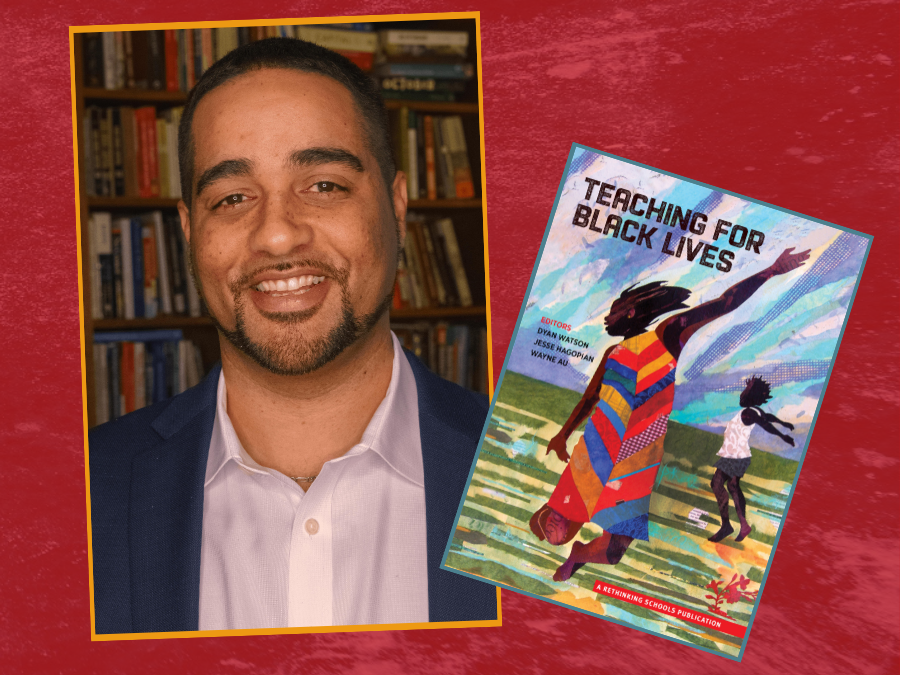
It’s incredible to think back to when Dyan Watson, Wayne Au, and I began editing Teaching for Black Lives for Rethinking Schools. With the insights from leading antiracist educators and the gorgeous artwork contained in the book, we knew that any educator who picked up the book would have an invaluable guide to centering Blackness in the classroom. But we couldn’t have known what the coming years would bring: the rise of the Black Lives Matter movement, the eruption of the 2020 uprising, the backlash against antiracist teaching, the banning of antiracist books, and the attack on LGBTQ+ students.
And we couldn’t have known how important the book would be to helping form a network of educators resisting educational gag-order laws in states and school districts around the country. Over the past three years, more than three thousand educators have heeded the call from the Zinn Education Project and joined a Teaching for Black Lives study group.
Educators have organized these study groups in dozens of states — including places where teaching the truth about systemic racism has been outlawed. These groups give educators a place to learn, reflect, and struggle for educational justice. Over the past couple of years, I have joined monthly study group meetings of educators and listened in on their discussions about building an antiracist curriculum and resisting injustice — an experience that has been one of the great joys of my life. I have been inspired by the 15 teachers at Cordley Elementary in Lawrence, Kansas, who meet once a month to discuss the Rethinking Schools book, Teaching for Black Lives, and identify opportunities to “disrupt racial inequity” in their school. I have been moved by the 18 new and aspiring educators in Minneapolis, the 23 educators from Kirkwood R-VII School District (K–12) in Missouri, and the 14 pre-k-8th-grade Escuela Del Sol Montessori educators in Albuquerque — among the hundreds of Teaching for Black Lives study groups formed since 2020 — which are defending Black students and teaching the truth about Black history.
One educator explained why the Teaching for Black Lives study groups were so important: “This group is important to me so I can find the validation and support I need as I battle difficult conversations and oppressive systems in my school district.” Another educator said, “I teach in a rural community where teaching for Black lives is seen as a threat. I hope to find a group to grow with, in disrupting and re-humanizing spaces in and beyond my classroom to extend the values and practices of teaching for Black lives at an institutional and cultural level in my school, district and community — instead of being siloed into a classroom.”
You, too, can be part of this educational uprising. Gather fellow educators to resist anti-Blackness. Apply today to start a study group, and join the movement to teach for Black lives! Members of each study group receive copies of Teaching for Black Lives, a Rethinking Schools subscription, and access to classes and workshops throughout the year.
See you at a study group soon,
Jesse Hagopian, co-editor of Teaching for Black Lives


